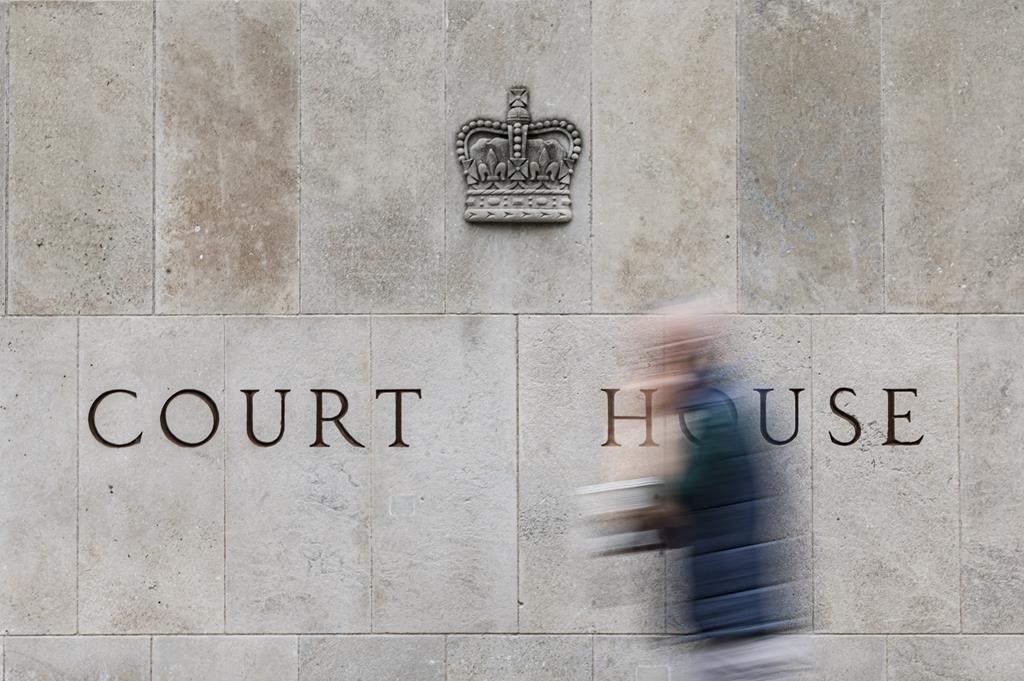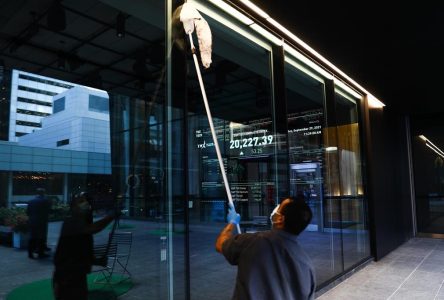TORONTO — The Criminal Lawyers’ Association is calling on the Ontario government to boost the province’s legal aid program, saying insufficient funding is leading to more accused being unrepresented and discouraging young lawyers from staying in defence law.
The association, which wrote to the province last month seeking a funding model that keeps pace with the cost of living, said it’s set to meet with the government next week to discuss the issue.
Association president Daniel Brown said stagnant legal aid funding has led to many accused having to represent themselves in Ontario courts because they don’t qualify for the program, which in turn leads to inefficiency in the justice system and places an extra burden on the courts.
“This is just a system in crisis,” Brown said in an interview on Tuesday.
Cases involving unrepresented accused can take three or four times longer than cases with criminal defence lawyers, Brown said.
“We have judges who have to spend time teaching self-represented accused persons how to defend themselves. They have to equip them with the knowledge and they have to spend extra time with them in courts,” he said.
“(The accused) have long meandering questions and convoluted legal applications that often don’t go anywhere because they don’t know what they’re doing. It’s like the equivalent to somebody trying to do their own open heart surgery. It’s a recipe for disaster.”
The low income cutoff for legal aid falls well below the poverty line, Brown noted.
“Somebody who is making a minimum wage job would not qualify for legal aid,” he said. “Quite frankly, they wouldn’t have any hope of paying for private counsel, especially in the complex cases in the Superior Court.”
Betty Vavougios, president of Ontario Crown Attorneys’s Association said court runs less efficiently when accused individuals try to navigate the system on their own.
“The entire justice system suffers without a properly funded legal aid system,” Vavougios wrote in a letter Monday to the Criminal Lawyers’ Association that supported the latter’s position.
“It’s not an acceptable solution for the Crown and judiciary to be forced to bear the burden of the added responsibilities that accompany dealing with unrepresented accused making their way through the justice system.”
Ontario’s Ministry of the Attorney General did not immediately respond to a request for comment.
In 2019, Ontario’s attorney general made a $133-million cut to legal aid funding, which amounted to 30 per cent of the program’s budget at the time.
Last year, the government said it would spend more than $72 million over two years to hire additional Crown prosecutors and new courts staff to address backlogs and support court services and victim and witness services.
Brown said the cuts to the legal aid program coupled with the increased funding to the the rest of the justice system have created “unequal justice.”
“(The government) fails to recognize that the absence of defense counsel in the absence of legal aid funding is the source of these backlogs,” Brown said. “Hiring more crowns, and more court staff isn’t going to resolve this problem.”
Brown said legal aid rates for lawyers have remained the same for years, despite inflation, and that’s pushing young lawyers who largely rely on legal aid cases to leave defence law altogether.
“A criminal defence lawyer right now is a bit of a dying breed. And it’s dying because the source of funding for most young lawyers, whether they be racialized, female, just young defence lawyers, is legal aid,” he said.
“And legal aid is being starved.”
There are hard caps in many cases of eight or 10 hours that a defence lawyer could be paid for under the current legal aid system for an entire trial, Brown said.
“That’s about a third or a quarter of what’s actually required to defend this case properly,” he said. “So many lawyers simply don’t take legal aid. Especially the experienced lawyers are refusing to take legal aid because it’s grossly underfunded.”
This report by The Canadian Press was first published Oct. 18, 2022.



